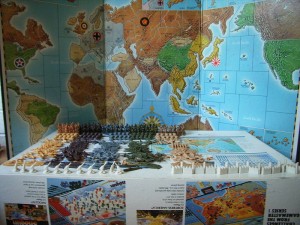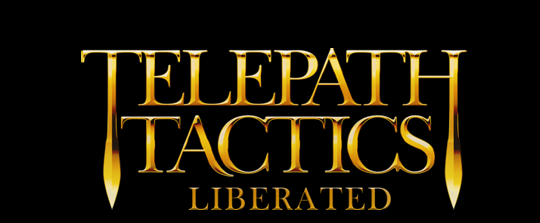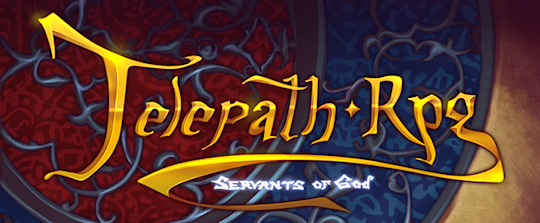A recent Gamasutra interview with Matt Findley has caused a firestorm of debate to erupt across the internet concerning the continued vitality of turn-based RPGs.

Findley is an alum of the now-defunct development studio Black Isle, which produced legitimately brilliant turn-based RPGs like Fallout. So you can understand why an old-school RPG fan might be slightly upset at some of the opinions he expresses in this interview, brazenly entitled “How RPGs Were A 30-Year Detour”:
Approaching this genre what was your go-to in terms of the way you wanted to present the action or player interaction? Because it’s sort of a new spot for you guys as a developer.
Well, you know, we analyzed the long history of video games. I think these games always wanted to be action games at their heart. I think all those old turn-based games, it’s just that’s all the technology would allow.
…
Fantasy computer games came out of people playing D&D, and then picking up computers and going, “Oh, it can do the math for me.”
Right. That’s exactly it. [laughs]
So, now you’re sort of moving a step back and saying, “You’re not solving that simple problem that was solved with the Apple II anymore.”
That’s definitely part of it. I mean, the reason those games were turn-based sword battles is that was the only option you had. I think, now you get that twitch element of “me at the controller.” When you take the monster down because you successfully hit, blocked, switched to exploding arrows, and shot him in the head, you’re getting that same depth that you would have had through 30 years ago D&D experience, but it’s happening fast-paced, quick, and in real-time for a modern audience that wants to see action.
I won’t be the first to erupt in howls of indignation over this, and Jim Rossignol on RPS does a fine job of countering Findley’s claims. What continues to bother me, however, is that Findley is not alone in issuing these sorts of ignorant opinions about turn-based RPGs. As an indie developer who works in Flash, I periodically get updates from MochiGames with post-mortems from other developers. Consider these gems, gratuitously included in two recent post-mortems. First, one from BoMToons:
First off, let me mention that I HATE RPGs with a melting fury. I find it absolutely boring and frustrating to have to sit there and wait for an enemy’s “turn” when I could clearly be running away, dodging, casting a spell, and attacking all at once. If you want turn-based game-play, play a board game where turns make sense. The whole point of vidya gamez is that they have real time action and adventure – pulse pounding predicaments precipitated by pixel proximity.
Seriously? “Vidya gamez?” It’s like we’re being lectured to by George W. Bush.
Second, a slightly less offensive one from Rob James/robotJam:
I thought this sounded pretty cool, as I’d always fancied making an RPG type game in Flash and it had the start of the basic elements, gamers love games based on chance (like Solitaire, or Boomshine- games which don’t require any skill) so I knocked up a really basic prototype.
There are two common themes running through all of these comments: (1) games are “supposed” to be about action-based gameplay, and (2) action-based gameplay requires skill while turn-based gameplay does not. [EDIT: Rob James is pretty adamant that he didn’t mean his comment as a slam on RPGs–you can read his explanation in the comments below the article.]
The fact that I keep seeing these sentiments espoused by game developers worries me. When one person says something stupid, it’s generally enough to shake one’s head and just keep walking. But when three people say it, they’re probably vocalizing something that other people are thinking. So let’s take this seriously for a moment and address these sentiments.
1. Games are not “supposed” to be about anything
At the outset, let’s get one thing clear: games are not, at their heart, about anything in particular. Video games are a medium. To say that video games are fundamentally about one group of gameplay elements is tantamount to declaring that novels are about romance, or that films are about dialog. As I’ve written repeatedly, this is stupid.
Action games are just a genre; real-time gameplay, merely a mode of interaction. It has its advantages, sure, and it can be extremely enjoyable. But turn-based gameplay has advantages as well, some of which were recently articulated by the CRPG Addict in this piece. To his observations, I would add that there is something extremely satisfying about the deliberate play that turn-based games afford. Because of the slower pace and greater degree of predictability in most turn-based games, the player is able to plan much farther ahead and execute more elaborate plans in order to achieve victory. It is also nice not to have to make any and all tactical decisions on a split-second basis. Whether it is actually better is, of course, a matter of taste.
Some people attempt to justify the notion that games are fundamentally about action-based gameplay because such gameplay (they insist) simply isn’t possible outside of video games, whereas turn-based gameplay is easily reproduced via board games. This is nonsense.
I used to play Unreal Tournament religiously back in college, and I regularly break out Super Smash Brothers and Super Monkey Ball to blow off steam. These are all great games, and all of them feature action-based gameplay. Surely all of these games would be nigh-impossible to create without the assistance of computers, right?
Nope–not so. Paintball, Rock’em Sock-em Robots and Labyrinth each predate UT, SSB and SMB, respectively, by many decades. Likewise, martial arts sparring predates Super Street Fighter 2. Sports predate sports games, and so on.
By re-imagining each of these classic games on computers, developers are able to include more complex rules and interactions that are not bound by real-world physics. Further, making them into video games eases the constraints of having to physically, painstakingly craft the environments in which each game takes place. (It is, for instance, far easier to drag-and-drop maze pieces within a map editor than it is to physically carve a new Labyrinth course out of blocks of wood.)
The same limitations that hamper paintball, Rock’em Sock’em Robots and Labyrinth also affect turn-based board games. Chess, Checkers, Go, Stratego, Risk, and other turn-based board games rely entirely upon emergent complexity in order to produce their gameplay magic. (Which is to say, they depend upon complex interactions arising spontaneously out of relatively simple rulesets.) Board games which attempt to introduce more complex rules quickly become extremely difficult to manage, as anyone who has ever slogged through a marathon game of Axis and Allies can attest.
Likewise, board games are highly limited in their environments due to the cost and difficulty of producing the actual game boards. Most board games have only a single board, and not even a large one by video game standards. Some recent board games have tried to address this issue through the use of modular board pieces, but they simply cannot rival the breadth and variety of environmental content one can produce in a video game.
The very same limitations that one overcomes by creating an action-based game on a computer are also addressed by creating a turn-based game on a computer. One can easily craft huge tile-based environments for a CRPG that would prove cost-prohibitive and extremely unwieldy to create as a physical game board. One can create new enemies and units without having to produce dozens of new physical game pieces.
And the rules can be far, far more complex. Imagine trying to play even a fairly straightforward tactical RPG like Fire Emblem as a board game. Every single attack would have to be preceded by calculations about chances to hit, speed differentials determining how many attacks each unit gets, critical hit rolls, and calculations to determine damage dealt. These certainly aren’t considerations you have to deal with in strategy board games like Chess or Go, and they make the prospect of playing such a game on a board seem something just short of insane.
So the next time someone comes along and tells you that turn-based games are better-suited to the physical world using boards and pieces, simply ask them: “Exactly which drugs are you smoking, and in what amounts?”
2. Action-based gameplay does not require more skill
It’s currently vogue to define RPGs as games where character stats, and not player skill, determine the outcome of in-game challenges. However, as a longtime fan of both RPGs and action games, I find the frequently bandied-about skill-based distinction between the two somewhat arbitrary.
Consider the following question. Which is more colorful: orange or purple? Or this. Which is meatier: steak or sausage? These are clearly rather inane questions. Orange and purple are both colors; steak and sausage are both meat. They are merely different variations on the same theme.
To say that action game challenges require more skill than turn-based game challenges is rather like saying that orange is more colorful than purple. The whole premise is nonsensical. Consider baseball and chess. Sure, baseball requires physical skill, excellent reflexes, and a limited degree of tactical decision-making from its players. But while chess does not require physical ability or reflexes, it does require tactical skills several orders of magnitude greater than those a baseball player requires. One cannot really say that either game requires more skill than the other: both require skill, but of different types.
I challenge the action gamer who thinks turn-based RPGs require no skill to play Eschalon: Book II or Nethack for more than an hour. I think he will find himself quite lacking in certain skills that he never had to develop playing Gravel-Voiced Manly Sword-Swinging Demon Slayer Of War 5. And while it is certainly true that not all turn-based RPGs require the same level of skill that Eschalon or Nethack do, we needn’t pretend that action games are all paragons of challenge either. They aren’t, aren’t and aren’t.
So let’s be honest with each other. Development houses aren’t churning out action RPGs because they require skill to play. These developers aren’t sitting around their offices playing turn-based RPGs, thinking “Gosh, this game is so easy; if only we made it so the player had to mash a button…”
No. Skill isn’t the reason for the recent glut of action RPGs: money is. Development houses are churning out these games because they see a large market for them, one larger than the market for turn-based games. And that’s fine. They are businesses, after all, and they are entitled to cater to the market however they think will best ensure their continued survival.
But at the same time, these developers shouldn’t feel free to trumpet their mindless little hack-and-slash clickfests as something inherently superior to the more deliberate games that came before them. After all is said and done, turn-based RPGs were never a detour–just a different destination.








